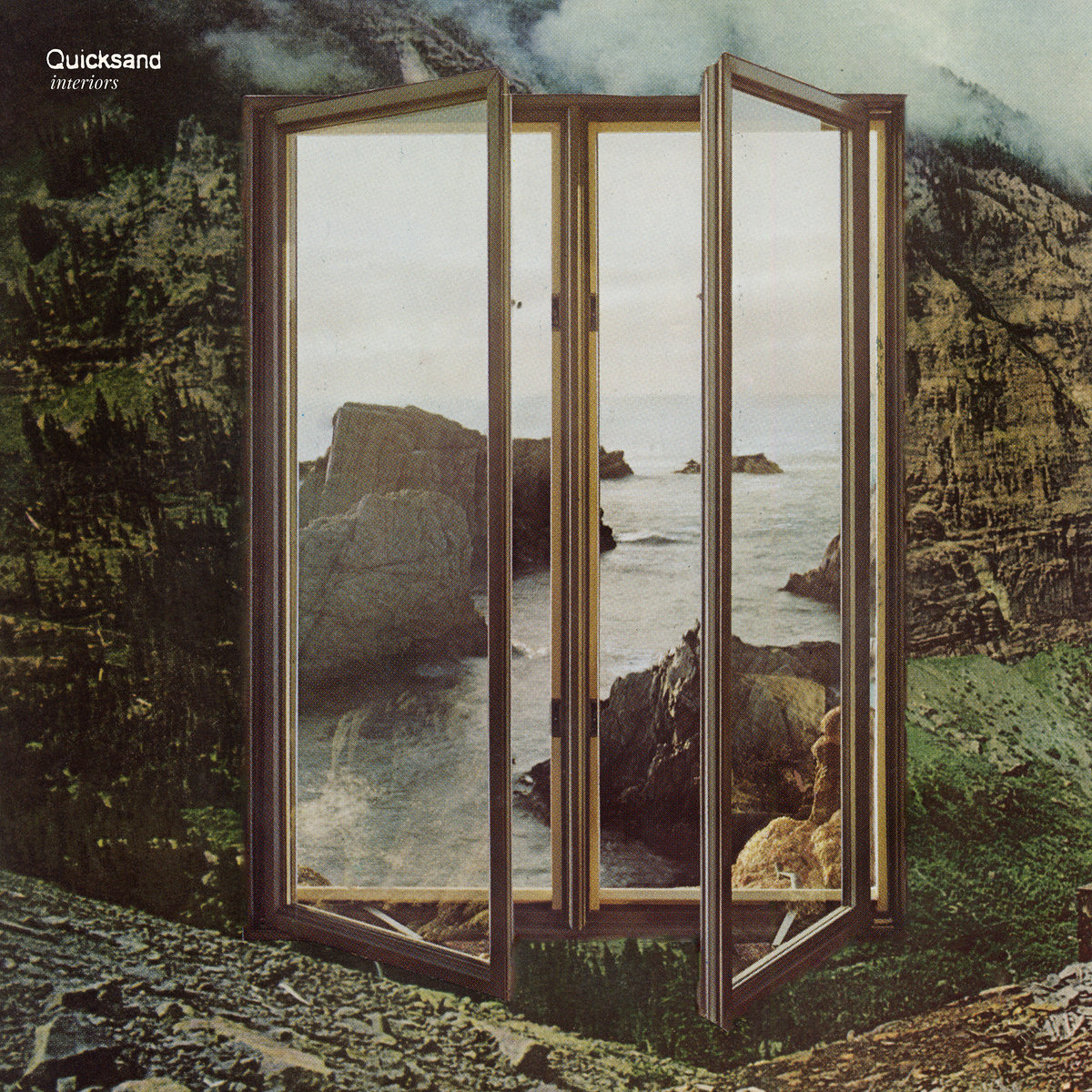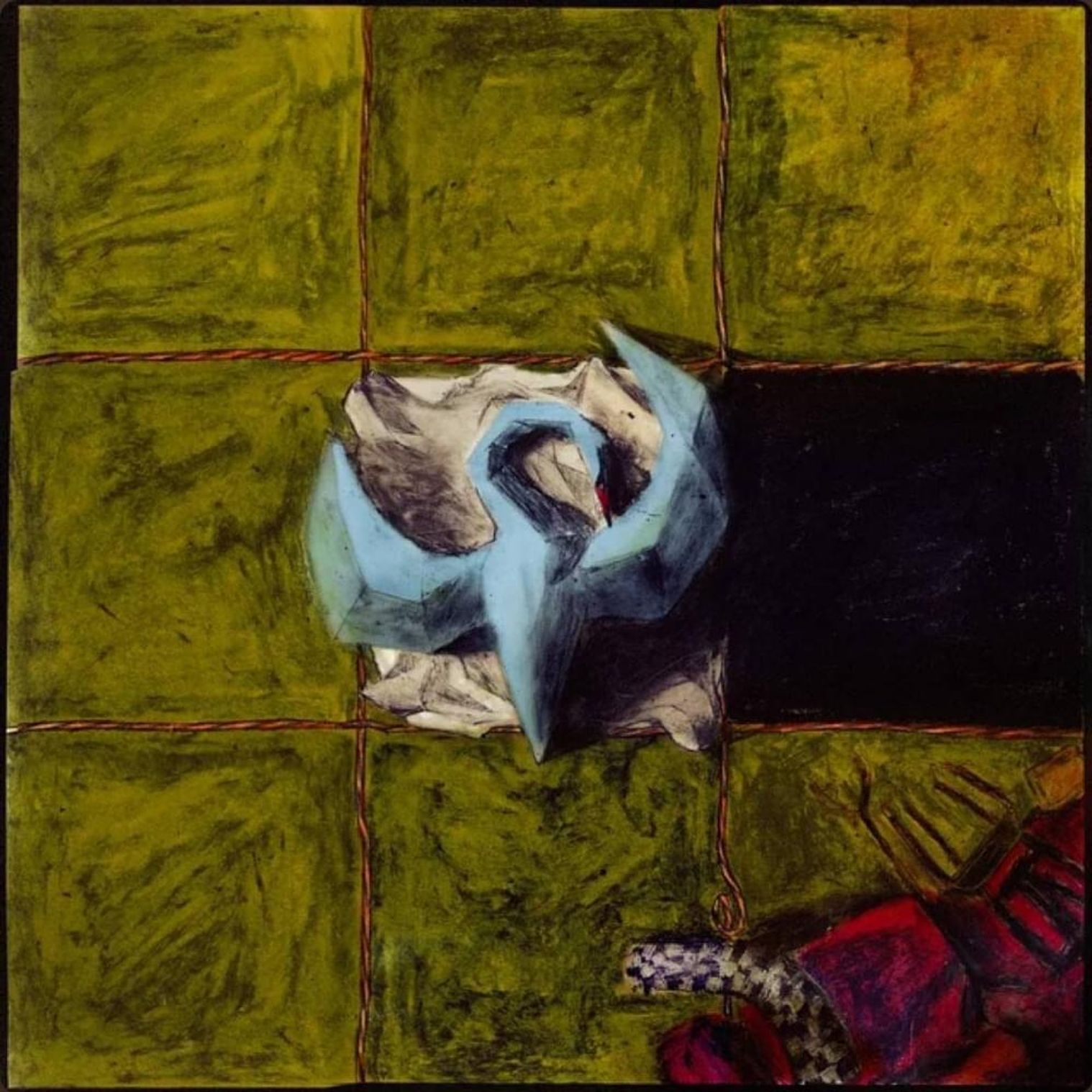There's a certain bass sound that will always recall the early '90s. It's a fat, distorted rumble, a sandworm throb. It's angular and unpredictable, but there's something sexual about it, too. It speaks to the moment when hardcore musicians figured out that they could make something heavier and more dangerous if they slowed down a bit, if they projected a sort of urbane menace rather than a galloping ferocity. That bass tone is most commonly associated with noise-rock bands like the Jesus Lizard and (especially) Unsane, but it was all over the place back then. The noise-rock bands that did it best were the ones who were most concerned with being foxy; Girls Against Boys spring immediately to mind. But you could also hear it in further-out, genre-agnostic bands like Morphine or even Soul Coughing. And you could hear a whole lot of it on the two albums and the one EP that the New York band Quicksand released between 1990 and 1995. I don't know why that bass sound faded away; maybe it has something to do with nü-metal taking a version of that sound and with successive generations not wanting to do anything that sounded even remotely like nü-metal. But that bass sound is once again all over the reunited Quicksand's Interiors, their first album in 22 years. I didn't know how badly I missed it until it came back to knock me around some more.
Quicksand's story has always been a fascinating one. Frontman Walter Schreifels had been the guitarist and the main driving force behind the Gorilla Biscuits, easily the best band to come out of the late-'80s youth crew straight-edge revival. (Any list of the greatest New York hardcore records of all time really only has to have two records on it -- the Cro-Mags' The Age Of Quarrel and the Gorilla Biscuits' Start Today, probably in the 1-2 spots.) But by the time the Gorilla Biscuits ended, Schreifels found himself getting further and further away from the NYHC tough-guy posture. He came from one of the country's most notoriously violent music scenes, but he was getting older and his interests were growing. Around the time he turned 21, he broke edge and had his mind blown by shoegaze.
Schreifels started Quicksand with a few other New York hardcore types and started experimenting with a slower, more melodic, more dynamic sound. After one EP, they got snapped up by Polydor during the whole post-Nirvana major-label feeding frenzy. And while they never got huge, they did make a couple of records of nasty, satisfying post-hardcore, just as post-hardcore was becoming its own sound. Along with L7 and Sublime, they headlined the first-ever Warped Tour in 1995. And then, within a few years, they broke up. Schreifels went on to form a few other bands, most notably Rival Schools, but nothing else he ever did had the same gut-wrench force of those first two Quicksand records. Bassist Sergio Vega, the man behind that nasty bass sound, went on to replace the late Chi Cheng in Deftones. And now, after all those years away, Quicksand are back like they never left.
In Interiors, we can hear the work of four musicians who never should've stopped playing with one another, who seem to speak each other's language and follow each other's leads. Quicksand have been playing reunion shows for the past few years, and that's been all they needed to rediscover the sort of push-pull focus that they brought to their old records. But they don't sound the same, either. Schreifels' voice is a husky, melodic croon these days; he doesn't bark the way he once did. They sound smoother and more fluid than they ever did, and there are a couple of gorgeous instrumental interludes that aim for straight-up beauty, something that never much interested Quicksand before. And the sound of a track like "Hyperion" is a lot more gentle and expansive than anything Quicksand attempted in their first iteration. Interiors doesn't have the raw, elemental power of a record like Slip, Quicksand's classic 1993 full-length debut. But in its lighter touch, it's got more grace than anything in the band's back catalog.
Part of me is slightly embarrassed to give Album Of The Week to Quicksand just one week after I gave that same distinction to Converge's The Dusk In Us. You know you're an old punk when you find yourself constantly repping for music made by East Coast hardcore veterans in their 40s. They're both out on the same label, no less. But I am an old punk, and these bands are important to me. And anyway, it's inspiring to see these two bands operating near the peaks of their respective powers so long after releasing their genre-defining classics. The two albums also sound nothing alike. Converge made a monument to frantic, urgent anxiety, while the Quicksand of 2017 sound more self-assured, and more into playing with each other, than they've ever been. They've returned as a fully formed unit, and even as they've matured, they've still got a sound that nobody else has been able to replicate in all the time they've been gone.
Interiors is out 11/10 on Epitaph.
Other albums of note out this week:
• Taylor Swift's move to recapture pop dominance Reputation.
• Tim Heidecker's satirical political collection Too Dumb For Suicide: Tim Heidecker’s Trump Songs.
• Gun Outfit's hazy roots-rocker Out Of Range.
• Yung Lean's queasy, insular rap record Stranger.
• Kindling's fuzzed-out shoegazer Hush.
• Ian Svenonius' erudite, groovy solo LP Introduction To Escape-ism.
• Bethlehem Steel's restrained, uneasy Party Naked Forever.
• Made To Break's intense, skronky abstract jazz piece Trebuchet.
• AllegrA's smoky, slow-burning self-titled debut.
• Buffy Sainte-Marie's protest-song collection Medicine Songs.
• Grateful Dead drummer Mickey Hart's solo LP RAMU.
• Angel Olsen's outtakes collection Phases.
• Tears For Fears' greatest-hits joint Tears For Fears Rule The World.
• Sleigh Bells' mini-LP Kid Kruschev.
• Tennis' We Can Die Happy EP.






